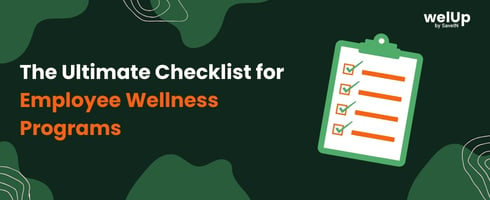In an age of blurred lines between work and life, employee wellness programs have become the pulse...
Beyond Hospitalization: The Future of Employee Care Programs
Health insurance offerings for employees have focused only on hospitalization insurance. However, rising health costs, changing demographics in the workforce, and the emerging awareness of mental health and well-being have explored the limits of that approach.
Today’s workplaces are more diverse, more digital, and more employee-centric than before. Employers are reinventing employee benefit plans to meet the needs of a workforce focused on overall well-being, mental health, work-life balance, and prevention.
Employees did not want just to have coverage for past or future emergencies; they expect to have support for their complete health and well-being while in and outside the workplace. This blog covers the future of employee care programs, trends, and best methods for building a healthy, resilient, and engaged workforce.

The New Pillars of Employee Care
1. Comprehensive wellness
Recent trends in employee care programs are evolving from a reactive, illness-based model for care to a proactive, holistic approach to care. Examples of care include:
- Physical wellness: Exercise programs, nutrition counseling, and preventative screenings.
- Mental wellness: Access to counseling, stress management, and digital mental health tools.
- Financial wellness: Debt management, retirement planning, and financial literacy workshops.
- Social and emotional wellness: Opportunities for community building, peer support, and an inclusive workplace culture.
2. Personalization and Flexibility
Employee needs and preferences vary greatly. The future of care programs will be tied to personalized offerings:
- Flexible benefits: Choose your benefit packages, health savings accounts (HSAs), and flexible spending accounts (FSAs).
- On-demand opportunities: Telemedicine, teletherapy, and many digital wellness apps that work for you.
- Self-paced challenges: Program your own fitness, nutrition, and/or mindfulness activities.
3. Preventive and Action-Based Programming
Prevention is more cost-effective and impactful than treatment. Leading organizations are:
- Incentivizing preventive care (e.g., annual check-ups, vaccinations).
- Offering wellness incentives for healthy behaviors.
- Integrating regular health risk assessments and personalized action plans.
4. Mental Health and Emotional Wellness
Mental health is now recognized as central to productivity and retention. Future-ready programs provide:
- Confidential counseling services, both in-person and virtual.
- Mental health days and stress management workshops.
- Substance abuse support and crisis intervention resources.
5. Family and Community Inclusion
Employee well-being extends beyond the individual. The best programs:
- Include family members in wellness initiatives (fitness challenges, preventive screenings).
- Offer parental support, childcare resources, and family counselling.
- Create a community by scheduling group activities and volunteering opportunities.
Key Trends Shaping the Future of Employee Care
A. Digital Transformation and AI Integration
Digital health solutions are revolutionizing employee care:
- Telehealth and virtual care: Employees can be seen by doctors, therapists, and coaches. This decreases barriers to care for all generations of employees.
- AI-powered wellness: New personal health coaching programs, chatbot programs for questions regarding benefits, and the use of predictive analytics to provide early intervention.
B. Multigenerational Workforce Needs
Different generations value different benefits:

Employers must offer a mix of traditional and digital benefits to attract and retain talent across age groups.
C. Work Environment and Flexibility
- Ergonomic workspaces: Adjustable desks, proper lighting, and quiet zones.
- Flexible work options: Remote work, hybrid models, and flexible hours.
- Policies that support well-being: Respect for time off, 4-day work weeks, and a culture of recognition.
D. Employee Assistance Programs (EAPs) Evolve
Modern EAPs go far beyond crisis counseling:
- Confidential mental health support
- Substance abuse programs
- Work-life balance resources (legal, financial, childcare)
- Career and personal development coaching.
Building a Future-Ready Employee Care Program: Actionable Steps
1. Assess Employee Needs
- Conduct anonymous surveys and focus groups.
- Use data analytics to identify trends in absenteeism, turnover, and claims.
- Involve employees in benefit design to ensure relevance and engagement.
2. Design Holistic, Inclusive Programs
- Integrate physical, mental, financial, and social well-being initiatives.
- Ensure benefits are accessible to all, including remote and hybrid workers.
- Provide resources for diverse family structures and life stages.
3. Leverage Technology
- Implement digital health platforms that facilitate telemedicine, teletherapy, and wellness tracking.
- Use AI to make personalized recommendations and proactive outreach.
- Provide mobile apps to facilitate workflow access to resources and support.
4. Emphasize Prevention & Early Intervention
- Promote regular health check-ups and screenings, effectively incentivizing these.
- Assign a wellness reward for healthy behaviours that are non-stressful.
- Provide employee wellness education and tools for subjects such as nutrition, exercise, and stress management.
5. Foster a Supportive Culture
- Train managers on spotting when their employees need to feel supported and free to be themselves.
- Celebrating success when it happens, on both a grand and small scale.
- Work towards a psychologically safe workplace that is emotionally inclusive and full of transparency around issues.
Employers' Advantage
Organizations with comprehensive employee support programs can realize many valuable benefits:
- More productive employees: Healthier, engaged employees perform better at work and can innovate for the good of the organization.
- Reduced absenteeism: Proactive support promotes health and reduces sick days, and happy, healthy employees tend to burn out less.
- More retention: Employees who know their well-being is valued tend to be more loyal employees, and not losing them decreases costly turnover.
The Future is Holistic, Personalized, and Digital
The future of employee care programs is about meeting the needs of the whole person instead of simply ensuring against hospitalization. As organizations move toward understanding and delivering holistic well-being, personalization, digital or remote-based approaches, and impacts, and making the work environment inclusive, they will all develop healthier, happier, and more resilient workforces.
From the employer's perspective, engaging an employee in their care goes beyond preventing hospitalization; businesses are investing in the future sustainability of their organizations.
wlUp is one such platform developed by SaveIN, which defines the future of employee care. It is designed for employee wellness, and simultaneously, it provides retention benefits to employers as well.



.png?height=200&name=health%20insurance%20(3).png)
Want to know more about welUp?
Share your details and we'll be in touch!